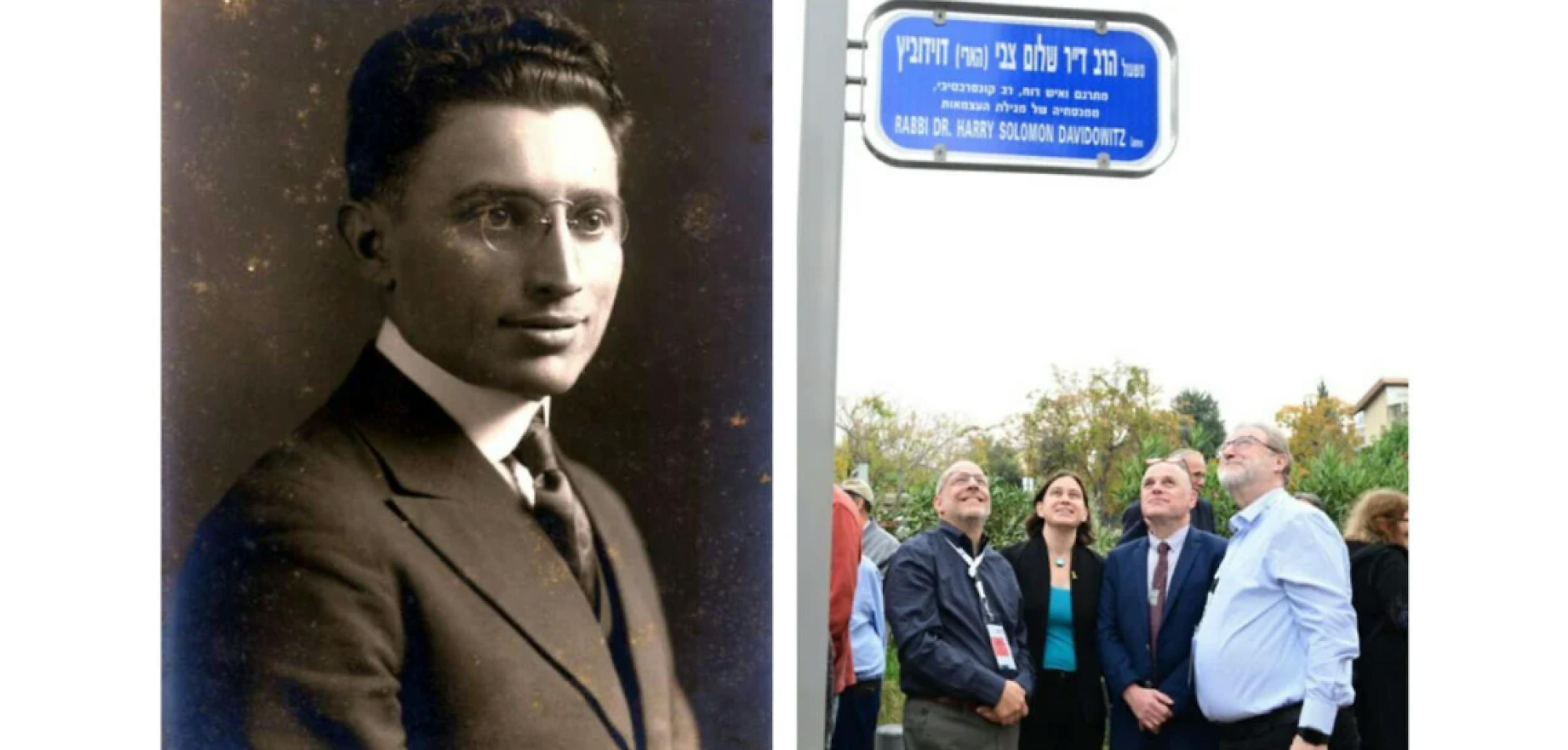1st street in Israel named for Masorti rabbi who influenced Declaration of Independence
December 16th, 2024

In Herzliya, the Conservative Movement celebrates the commemoration of US cleric Shalom Tzvi Davidowitz, who is likely responsible for adding God into the historic 1948 statement
By Mati Wagner for The Times of Israel | 15 December 2024, 6:06 am - Updated at 10:19 pm
The city of Herzliya unveiled on December 11 the first street to be named after Shalom Tzvi (Harry) Davidowitz, the Conservative rabbi who might have been responsible for introducing a reference to God into Israel’s Declaration of Independence.
Members of Israel’s Masorti Movement — known in the United States as the Conservative Movement — see the move as a rare and laudable example of official Israeli recognition for a figure belonging to a non-Orthodox stream of Judaism.
“Throughout Zionism’s history, the North American Diaspora has been effectively ignored,” said Yizhar Hess, vice chairman of the World Zionist Organization and former CEO of the Masorti Movement in Israel, ahead of the unveiling ceremony.

Image: Left: Conservative Rabbi Shalom Tzvi (Harry) Davidowitz (public domain); right: From right to left, Rabbi Mauricio Balter, executive director of Masorti Olami, Dr. Yizhar Hess, Rabbi Ashira Konigsberg, Rabbi Jacob Blumenthal, CEO of the Rabbinical Assembly and the United Synagogue of Conservative Judaism, look up at the street sign named for Shalom Tzvi (Harry) Davidowitz, Herzliya, December 11, 2024. (Herzliya Municipality)
“Figures important to 20th-century Judaism and to Israel’s history did not merit commemoration or memorialization, and if they did receive some recognition it was often while ignoring their connection to non-Orthodox religious affiliation,” he said.
Hess mentioned people such as Rabbi Abba Hillel Silver, Rabbi Judah Magnes, Henrietta Szold and Rabbi Abraham Joshua Heschel, whose ties to non-Orthodox streams he says have not been properly noted.
The street named for Davidowitz will clearly state that he was a Conservative rabbi.
“We are taking a step toward fixing this injustice today,” he said.
While Orthodox rabbis receive salaries funded by taxpayers and have a complete monopoly over marriage registration with no option for a civil ceremony, non-Orthodox rabbis are almost entirely denied state funding and the weddings they conduct are not recognized by the state.
Orthodox Judaism also has a monopoly over conversions and receives extensive funding for a variety of religious services that are largely unavailable to non-Orthodox streams of Judaism.
For decades, lack of recognition and funding for non-Orthodox streams of Judaism has been a source of tension between Israel and North America’s Diaspora, where Reform and Conservative communities comprise the majority of Jewish religious affiliation.
Herzliya’s Mayor Yariv Fisher said at the unveiling that his city was “pluralistic and always will protect democracy and work for solidarity and cooperation and mutual responsibility.”
The city’s previous mayor, Moshe Fadlon, and deputy mayor, Ofer Levy, were instrumental in getting the street named after Davidowitz, who was a citizen of Herzliya toward the end of his life. Also involved in the logistics behind the street-naming was former Labor MK Masha Lubelsky, a member of the Jewish Agency’s street-naming committee, who was born in Herzliya.
An op-ed published by Hess in April 2021, in Yediot Aharonot on Davidowitz’s role in the writing of the first draft of the declaration aroused interest in the rabbi.
The street, a tree-lined residential footpath, connects Herzliya’s Rabbi Abraham Kook Street with Hanna Rovina Street. The neighborhood is named after Rovina, a founder of Hebrew theater in Israel.
About 100 people attended the unveiling, including representatives of North America’s Rabbinic Assembly who were in Israel to attend a convention, as well as several of Davidowitz’s grandchildren who live in Israel, representatives of Herzliya’s Municipality and members of the Masorti Movement in Israel.
An American rabbi in Israel
It was purely by chance that Davidowitz, who served as a pulpit rabbi to Conservative congregations in Atlantic City, New Jersey, and Cleveland, Ohio, before immigrating to Israel in 1934, got involved in writing the first draft of Israel’s Declaration of Independence.
In 1948, on the first day of Passover, just days before the State of Israel ultimately declared independence, Davidowitz was visited by his neighbor, a lawyer named Mordechai Beham.
Beham had been tasked by Pinchas Rosen, who would become Israel’s first justice minister, with making a first draft of the declaration. Overwhelmed with the gravity of the task, the 31-year-old Beham turned to Davidowitz, who had moved to Tel Aviv and ran his father-in-law’s dental factory.
Davidowitz, who was born in Lithuania in 1887, had rabbinic ordination from the Jewish Theological Seminary, the Conservative Movement’s flagship institution of higher learning. His PhD from the University of Pennsylvania focused on the thought of Maimonides. He was also well-versed in the philosophical thought of America’s founding fathers and translated many of Shakespeare’s plays into Hebrew.
“The division of responsibility between Beham and Davidowitz is not clear,” said Neil Rogachevsky, professor of humanities at the University of Florida and co-author of “Israel’s Declaration of Independence: The History and Political Theory of the Nation’s Founding Movement,” which was published in 2023.
“I strongly suspect, and this is just a hunch, that Davidowitz was more involved than Beham. He was a literary man with philosophical training and a scholar of medieval Jewish philosophy,” said Rogachevsky. “So it was probably Rabbi Harry who came up with the term ‘Tzur Yisrael‘ [the Rock of Israel], but the draft remained in Beham’s hands so we can’t know for sure.”
And so it began
The first draft of the declaration, much of which was written in English and later translated into Hebrew, had other references to God, including the King James translation of verses from Deuteronomy.
But the term “Rock of Israel” was the only reference that remained throughout all the drafts.
A bitter argument broke out between the political leaders of the nascent Jewish state leading up to the public reading of the declaration on May 14, 1948.
Aharon Zisling of the socialist Mapam party thought that even a mention of “the Rock of Israel” was too much, arguing the document should be devoid altogether of references to God.
In contrast, Yehuda Leib Maimon Fishman of the Religious Zionist Movement fought for “the Rock of Israel and its Redeemer” (Tzur Yisrael v’Goalo).
Ultimately, David Ben-Gurion ruled that “the Rock of Israel” would remain.
“It is a very capacious term that allowed materialists to understand it generally as Zionist history whereas someone with a more religious or theological mind could understand it differently,” Rogachevsky said. “[David] Ben-Gurion was looking for these capacious ideas and compromises when it came to religion and state.”
Due to compromises that Israel’s first prime minister Ben-Gurion made with religious parties at the state’s founding, there is no separation of religion and state in Israel. Rabbis receive salaries funded by taxpayers, and only religious marriages and divorces — whether Jewish, Christian or Muslim — are recognized. State-funded bodies also conduct conversions to Judaism. At the same time, rabbis, judges or other functionaries belonging to non-Orthodox streams such as the Reform or Conservative movements are not recognized and receive state funding.
Hess said that the term “Rock of Israel” was a Solomonic solution to the clash between the religiously devout signatures of the declaration, such as Fishman, and the more secular-minded, such as Zisling.
“I am proud that a person who was a Conservative rabbi and who immigrated to Israel from America when this was not very a popular thing for American Jews to do was able to find a creative solution that brings together different worlds,” said Hess. “This way of thinking lies at the heart of the Conservative Movement — the ability to make room for both tradition and innovation, tradition and change.”
Rogachevsky said that Davidowitz was uniquely positioned to find a balance between Judaism and liberalism in the fledgling Jewish state.
“He was a fascinating guy — a JTS graduate with a background in Lithuanian Yeshiva learning who learned the whole cannon of universalistic Jewish philosophy of medieval times,” said Rogachevsky. “And he also was intimately familiar with the discourse of the American and British political tradition — people like Thomas Jefferson as well as Edmond Burke — and he was a translator of Shakespeare who used to recite from the King James Bible.”
“The rabbi more than anyone else probably saw what you had to do. He took from the best example of free countries in modern times — the US and Britain,” he said. “But he also understood that it can’t be America here, you can’t create a kibbutz or a Start-Up Nation in the Mediterranean that is divorced from history and tradition. We have to grapple with Jewish ideas.”
“To this day we are dealing with this tension,” Rogachevsky said.
Originally published on The Times of Israel




